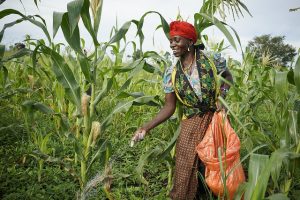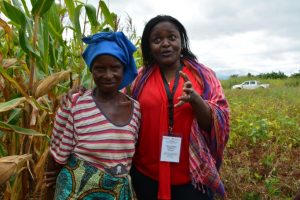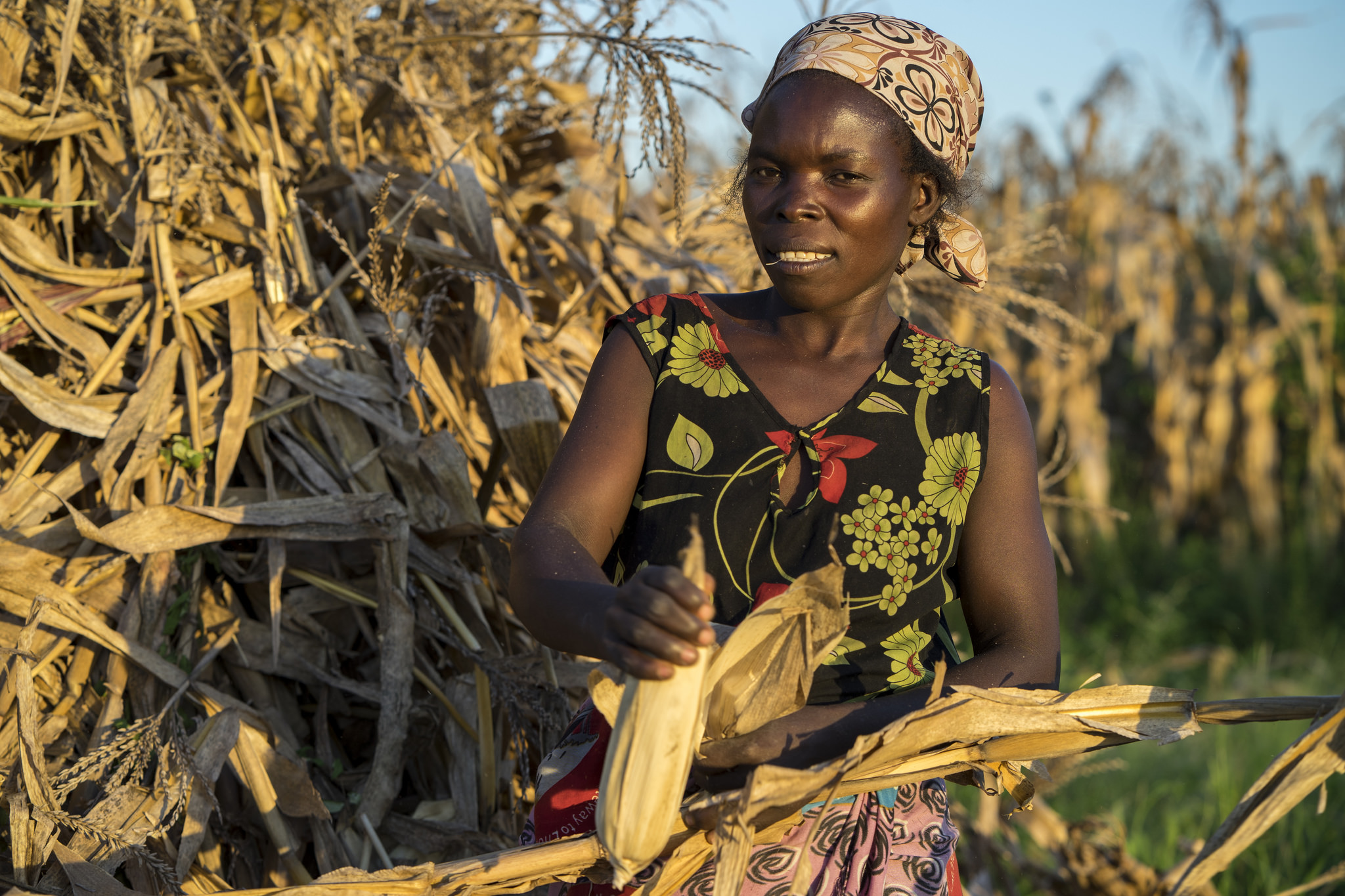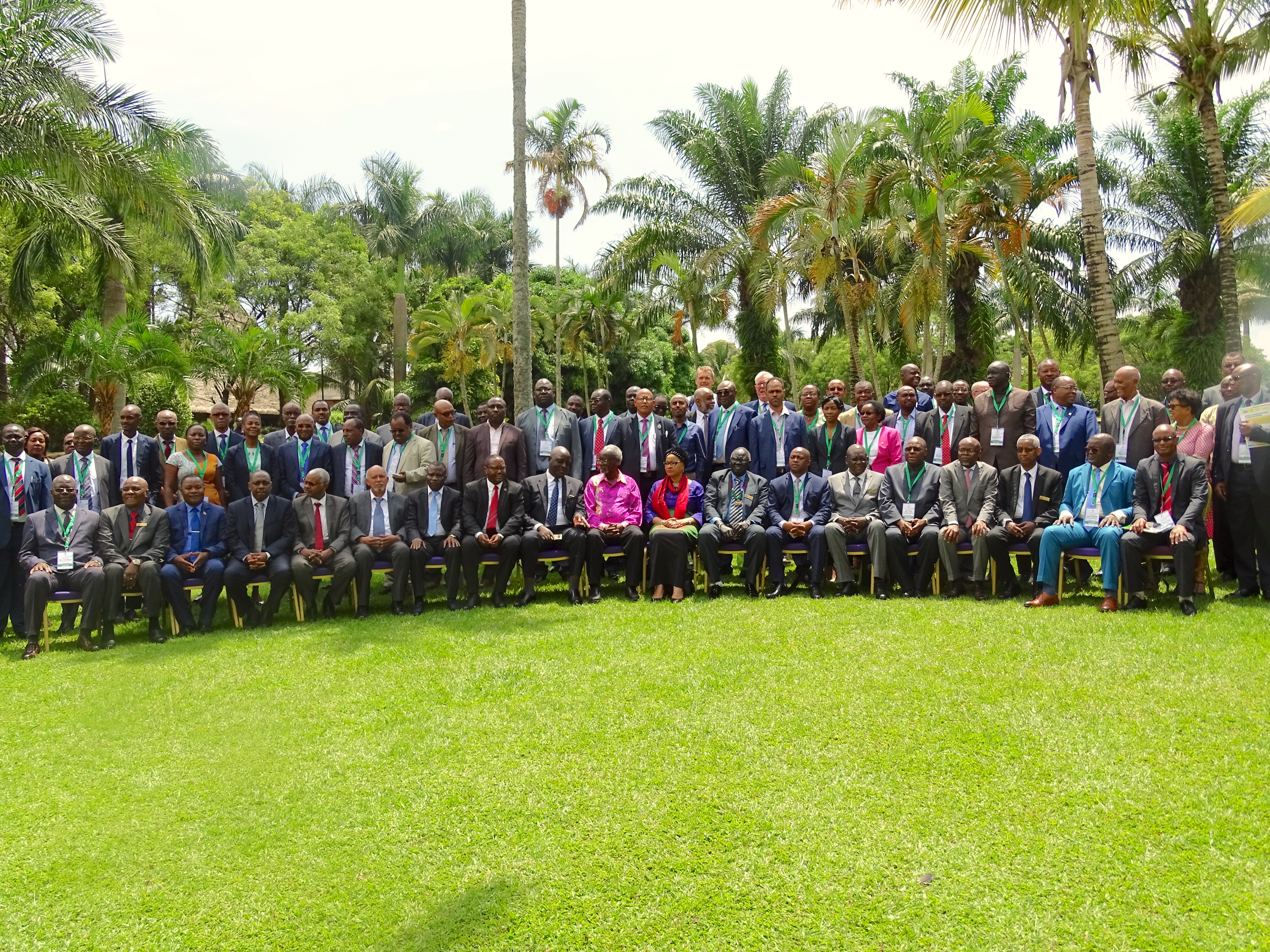
EL BATAN, Mexico (CIMMYT) — In a special interview to mark International Women’s Day, International Maize and Wheat Improvement Center (CIMMYT) gender and development specialist, Rahma Adam, detailed how her research aims to improve the agricultural productivity of women in southern and eastern Africa.
With women making up over 50 percent of farmers in many parts of Africa, it is essential to understand how gender roles, relations and responsibilities encourage and hinder their agricultural productivity, said Adam.
Understanding gender relations improves the work of researchers and development specialists to target programs in the correct areas and with right people in order to get the most impact, she said.
Adam works with the Intensification of Maize and Legume Systems for Food Security in Eastern and Southern Africa (SIMLESA) project to investigate gender relations to best promote sustainable intensification agricultural practices that will improve household food security.

Sustainable intensification agriculture practices are aimed at enhancing the productivity of labor, land and capital without damaging the environment. In practice, sustainable intensification involves such conservation agriculture practices as minimal soil disturbance, permanent soil cover and the use of inter-cropping and crop rotation to simultaneously maintain and boost yields, increase profits and protect the environment. It contributes to improved soil function and quality, which can improve resilience to climate variability.
Through SIMLESA, supported by the Australian Center for International Agricultural Research (ACIAR), Adam shares her findings with a network of stakeholders, such as governments and non-governmental organizations, aiding the delivery of agricultural technologies, taking into account gender norms to hold a greater chance of adoption.
We spoke to about her work in a short interview listen here or read below:
Q: Please explain a bit about your work. What is SIMLESA, where does it operate and what are its key objectives?
A: SIMLESA stands for, Sustainable Intensification of Maize and Legume Systems for Food Security in Eastern and Southern Africa, we are now in the second phase of the project. We focus on several things, providing the needed knowledge in terms of technology, improved varieties of seeds for maize and legumes and how to use them in the practice of sustainable intensification practices. The idea is to improve crop yields from current levels, that’s the basic idea of SIMLESA.
The project operates in mainly five countries, Tanzania, Kenya, and Ethiopia for Eastern Africa and Malawi and Mozambique for southern Africa. But we have three spill over countries where SIMLESA also have some activities, they are Rwanda, Botswana and Uganda.
We want to make sure farmers know the practices of sustainable intensification, they are able to use them, able to adapt them for the benefit of improving food security of the household and increase their livelihoods.
Q: Why is gender analysis important in meeting SIMLESA’s objectives?
A: Women in sub-Saharan Africa play a lion’s share of farming, the literature shows on average they farm as much as men, they make up 60 percent of farmers or more in some countries. Because they are the majority, there is no way we could put them on the back-burner, and not address or try to understand what are their constraints for agricultural production and agricultural marketing and all the other things that go with an agricultural household being successful in terms of their livelihoods.
It is very important to think about women, not alone, but also their relationships with men, we also have to think about who are their husbands. In sub-Saharan Africa most households are patriarchal, so they are male dominated, meaning a husband has much more say than the wife in terms of decision making in regards to what to grow, how much money should be spent that they have collected from agriculture, among other things.
It is important to not only think about how to improve the lives of women but also to understand the norms that go on. The institutional norms within a community, within a household and how they can play some sort of role that can either make a women successful or make a woman unsuccessful in terms of bringing up her household, in terms of the betterment of nutrition and schooling, etc.
It is a very complex issue. That’s why we cannot ignore gender itself as it sits in the rural households of Africa, because it is the nucleus of it. Once we understand how the relationship works between husband and wife or man and woman working within a society then we will be able to say how we can really propel sustainable intensification in these communities.
Q: Although rural women in southern and eastern Africa play crucial role in farming and food production why are they less likely to own land or livestock, adopt new technologies, or access credit?
A: Most of the problem of women’s lack of ownership of assets, such as land, among others stems from the institutional social norms of the communities in which they reside. Usually for patriarchal societies in sub-Saharan Africa, women are married into their husband’s home, and thus nearly all assets including land, livestock, improved or new technologies and money belong to their husbands and in some occasions, wives have very little say, with regards to those assets.
Because the major assets of the households are under the hands of the husband, it is hard for the wife to be able to access credit facilities, without involving the husband. As most of the credit and financial facilities, require a collateral, before they provide one a loan.

 Gender equality, youth and social inclusion
Gender equality, youth and social inclusion 